WALTER WATSON is professor emeritus of philosophy at Stony Brook University, State University of New York. His previous book was The Architectonics of Meaning: Foundations of the New Pluralism.
The University of Chicago Press, Chicago 60637
The University of Chicago Press, Ltd., London
2012 by The University of Chicago
All rights reserved. Published 2012.
Printed in the United States of America
21 20 19 18 17 16 15 14 13 1 2 3 4 5
ISBN-13: 978-0-226-87508-8 (cloth)
ISBN-10: 0-226-87508-3 (cloth)
Library of Congress Cataloging-in-Publication Data
Watson, Walter, 1925
The lost second book of Aristotles Poetics/Walter Watson.
p. cm.
Includes bibliographical references and index.
ISBN-13: 978-0-226-87508-8 (hardcover : alkaline paper)
ISBN-10: 0-226-87508-3 (hardcover : alkaline paper)
ISBN-13: 978-0-226-87510-1 (ebook)
1. Aristotle. Poetics. 2. PoetryHistory and criticism. I. Title.
PN1040.A753W38 2012
808.2dc23
2011034675
 This paper meets the requirements of ANSI/NISO
This paper meets the requirements of ANSI/NISO
Z39.481992 (Permanence of Paper).
TheLOST SECOND BOOK of ARISTOTLES POETICS
WALTER WATSON
The UNIVERSITY of CHICAGO PRESS
CHICAGO and LONDON
IN MEMORY OF
Richard McKeon ,
WITH ENDURING GRATITUDE
FOR HIS HAVING TAUGHT ME
SO MUCH THAT I COULD NEVER
HAVE LEARNED BUT FOR THE
GREAT GOOD FORTUNE OF
FINDING SUCH A MENTOR.
CONTENTS
ACKNOWLEDGMENTS
Without Richard Jankos book Aristotle on Comedy, the present book would not have been written. Seeing his text of the so-called Tractatus Coislinianus, with what appeared to be four-cause analyses of both catharsis and the laughable, I thought, We know the lion by his paw, as Johann Bernoulli is said to have remarked of Newtons anonymous solution to the brachistochrone problem Bernoulli had proposed. I have since consulted Jankos book a thousand times, but I am grateful to him for more than his book. He encouraged my work at an early stage and read a later draft of the entire manuscript. His many corrections have saved me from embarrassing errors, and his many suggestions have greatly improved the book.
Many of my Stony Brook colleagues have also read the manuscript of the book, or portions of it, at various stages of completion, and have provided valuable comments. They include Bruce Bashford, Homer Goldberg, and the late Richard Levin of the Department of English; and Robert Crease and David Dilworth of the Department of Philosophy. Richard Levin in particular I consulted many times on questions relating to Shakespeare and to poetic theory, and his understanding of the Poetics enabled him to express unqualified agreement with the key point of the book, the interpretation of the distinction between imitative and nonimitative poetry, long before the full argument was worked out. Robert Watson of the UCLA Department of English, Richard Brooks of the Vermont Law School, and the late Richard Wynne contributed helpful comments at an early stage.
I am indebted to Eugene Gendlin not only for specific suggestions, but for many enlightening and enjoyable e-mail exchanges on problems of Aristotelian interpretation and for the magnificent example of his Line by Line Commentary on Aristotles De Anima. I am grateful to my Stony Brook friend and colleague Bill Godfrey for teaching me Latin and for being a never-failing source of jokes and of information on all recondite subjects. The late Kenneth Telford was my friend from graduate school days, and we were colleagues for a while at the New School during the 1960s. I am grateful to him for the discussions that we had on his translation and interpretation of the Poetics as well as on countless other matters. The encouragement and steadfast support of my work by Douglas Mitchell of the University of Chicago Press has been invaluable to me. Finally, I am grateful to my wife, Norma, formerly a professional editor, for securing for me uninterrupted mornings in which to work and for her unfailing willingness to interrupt her many civic and musical activities to provide editorial and scholarly assistance.
INTRODUCTION
THE LOST SECOND BOOK OF ARISTOTLES POETICS
The surviving manuscripts of Aristotles Poetics consist of a single book. In this book, Aristotle says that he will speak of comedy, but this he does not do in the surviving book. This book concludes with the problem of whether tragedy or epic is more achieving of their common end, but this problem is left unresolved. In the Politics, when Aristotle uses the word catharsis, he says that he will say more clearly what the word means when he comes to speak of it in the Poetics, but this he does not do in the surviving book. These things give us reason to think that there was a second book in which the expectations they raise were met.
There is also evidence that a second book actually existed. In the Rhetoric, Aristotle says that he has distinguished the forms of the laughable in the Poetics, and has said what homonyms and synonyms are, neither of which is done in the surviving book. A lexicographer of the second or third century CE known as the Anti-Atticist lists as used in Aristotles Poetics the word kuntotaton (an alteration of kuntaton, most doglike or most shameless), and this word is not in the surviving book. Simplicius in the sixth century quotes Porphyry in the third as quoting a definition of synonymy from the Poetics that is not in the surviving book (Janko 1984, 172). A two-book Poetics is listed among Aristotles works by Diogenes Laertius in the third century, by Ptolemy al garb (the unknown) in the fourth century, and by Hesychius of Miletus in the middle of the sixth century (ibid., 65). After this, we have no references to a second book as existing.
The Poetics was the final work in the series of manuscripts that, as published by Andronicus of Rhodes in the first century BCE, constitute what has come to be known as the Aristotelian corpus. The second book of the Poetics would have been the last scroll in the corpus or the last pages of a manuscript volume and in either case would have been particularly vulnerable to loss. It is reasonable to conclude that there was in fact a second book, and that it probably became lost sometime after the middle of the sixth century.
In 1839, three manuscript pages that appeared to be an abstract or epitome of the missing book came to light. They were discovered by J. A. Cramer in the De Coislin collection in the Bibliothque Nationale in Paris. They have been called the Tractatus Coislinianus from the collection in which they were found. The earliest known location of the manuscript is the monastery of the Great Lavra on Mt. Athos, c. 1218 (ibid., 5). It is thought to be an early-tenth-century copy of a sixth-century original (ibid., 5, 8, 18).
Cramer thought the manuscript was written by a commentator on Aristotles Poetics who seemed to have had a fuller text than that which has reached us, especially in the analysis of humor (Janko 1984, 12). The text certainly contains material that is not in our Poetics, but its form is that of an abstract or summary, not a commentary. The first full examination of the Tractatus was by Jacob Bernays (1853). After presenting the text of the Tractatus, he begins his examination:
A series of statements, for the most part without any stylistic connection, are held together only by this unity, that they all concern the doctrine of comedy, and say only so much of tragedy and the other kinds of poetry as seems indispensable for contrast, and stand in some relation to Aristotles
Next page
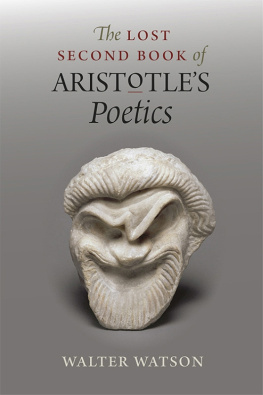

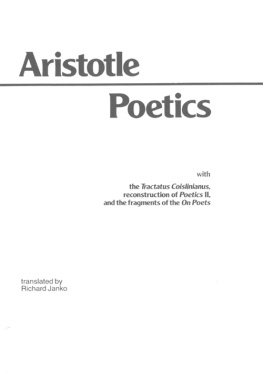
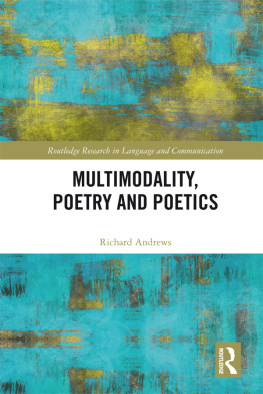
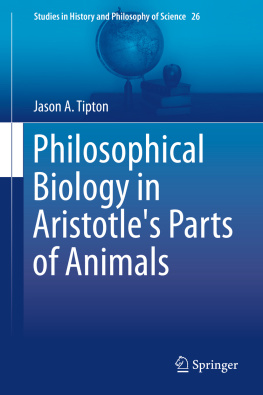
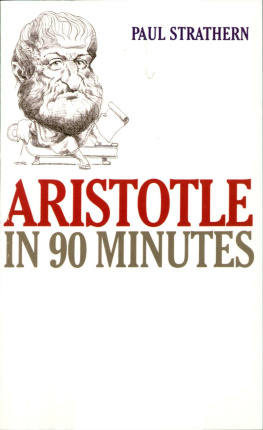
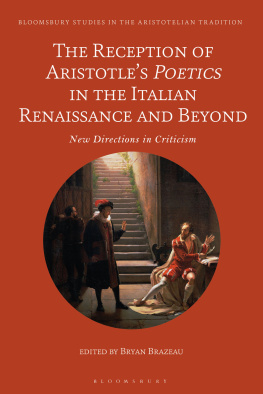
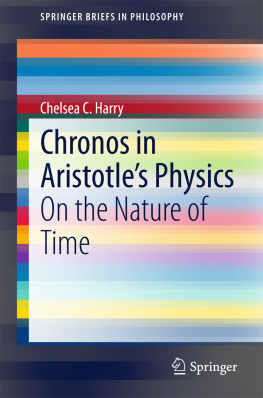
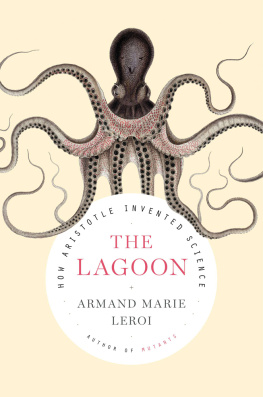

 This paper meets the requirements of ANSI/NISO
This paper meets the requirements of ANSI/NISO